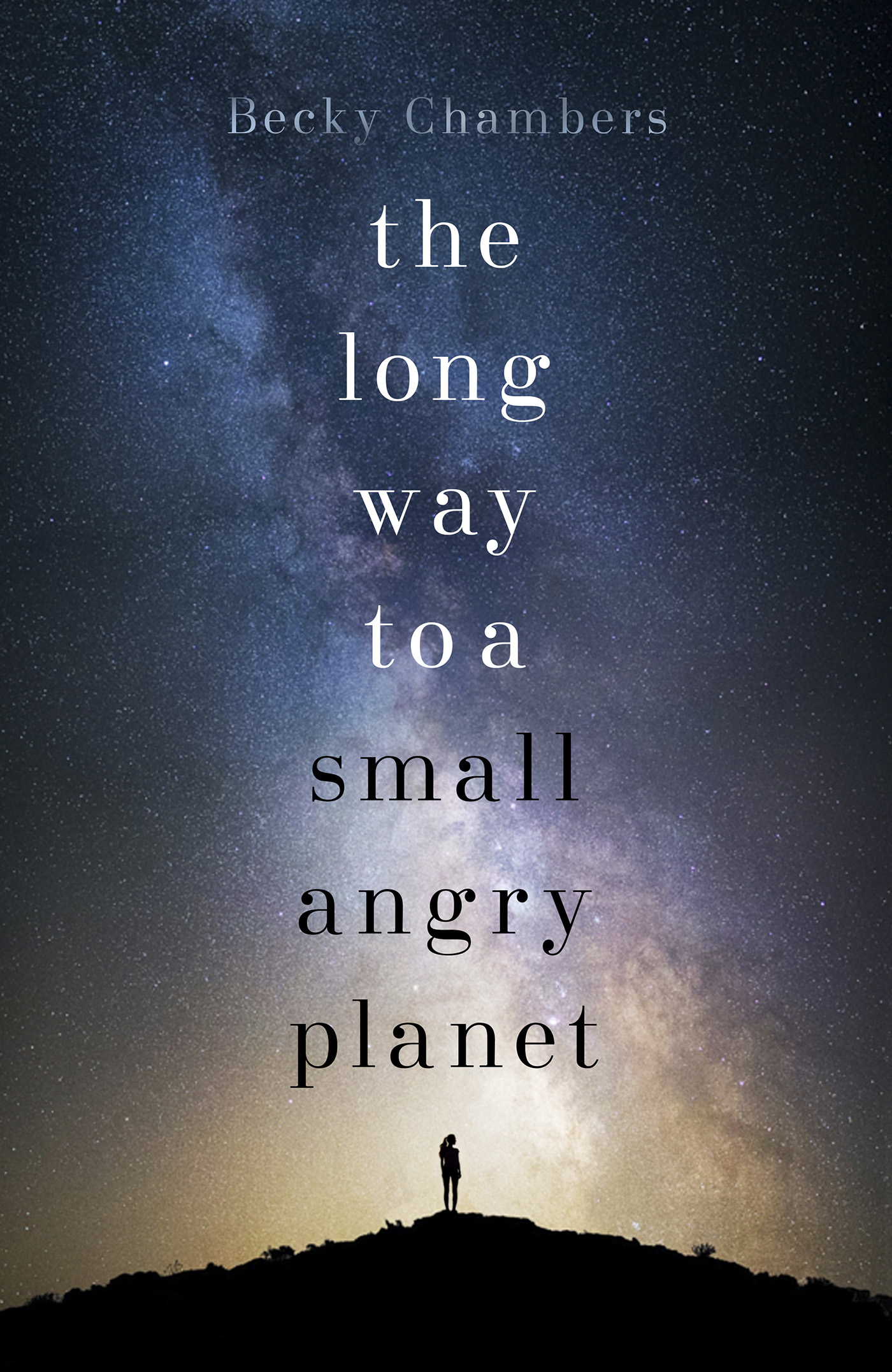nerd teacher [books] reviewed The long way to a small, angry planet by Becky Chambers (Wayfarers, #1)
Definitely worth reading, if only because it feels different from other sci-fi.
4 stars
I want to just start that I genuinely enjoyed this book more than I was expecting. I've found myself quite disappointed by sci-fi as of late because so much of it feels... the same, even when it's recommended for being 'more queer' or 'more feminist' or something. It still follows the same patterns, same narrative beats, same... failure to even imagine something different or new.
It's also been quite tiring reading a lot of sci-fi that focuses on perpetual conflicts. And while this book includes a conflict of sorts, it does not focus purely on the conflict itself. Instead, it focuses on the relationships between all of the characters. It looks at how things impact them, how they feel about each other, how they get to know each other... It actually gives a very necessary look at people within sci-fi, which I think more stories are in need of.
There …
I want to just start that I genuinely enjoyed this book more than I was expecting. I've found myself quite disappointed by sci-fi as of late because so much of it feels... the same, even when it's recommended for being 'more queer' or 'more feminist' or something. It still follows the same patterns, same narrative beats, same... failure to even imagine something different or new.
It's also been quite tiring reading a lot of sci-fi that focuses on perpetual conflicts. And while this book includes a conflict of sorts, it does not focus purely on the conflict itself. Instead, it focuses on the relationships between all of the characters. It looks at how things impact them, how they feel about each other, how they get to know each other... It actually gives a very necessary look at people within sci-fi, which I think more stories are in need of.
There are areas that I feel disappointed with, and it's largely because they felt glossed over. There's a whole thing between Ohan and Corbin, and their later interactions or the development of their relationship is never explored in the resolution. It's annoying because everything else is so beautifully done, but I feel like this one should've been handled much better considering the whole story around at least one of them. (And also, it leaves Corbin feeling really on the outskirts of the whole ship's crew.)


